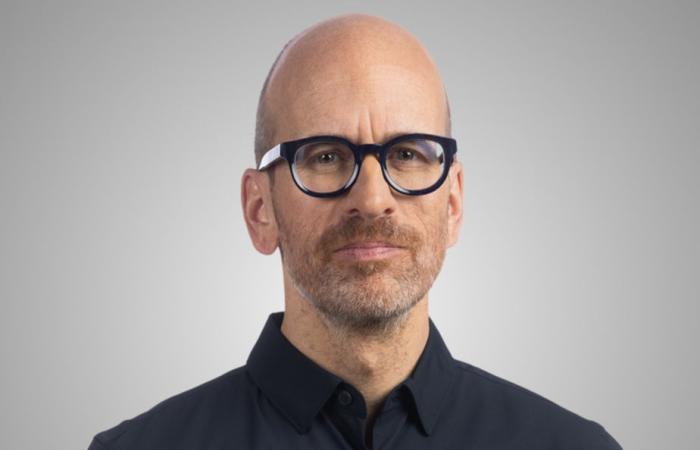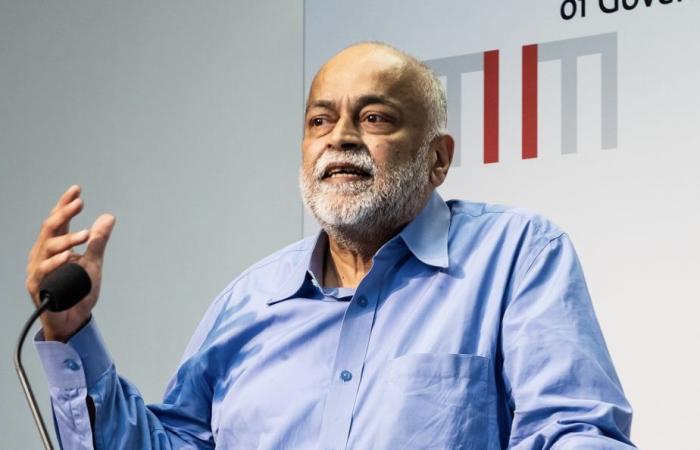Donald Trump’s victory on November 5, like his triumph in 2016, is often described as the result of the revolt of ordinary Americans against the elites.
Published at 7:00 a.m.
This kind of analysis astonishes the anthropologist Arjun Appadurai, who disputes it.
What has happened, he says, is that a new elite has ousted from power the elite it despises and which has occupied the White House for nearly four years.
PHOTO FOURNIE BY ARJUN APPADURAI
Arjun Appadurai
“What is surprising is that we so easily or so widely accept the idea that this is above all a revolt against the elites,” he said in an interview.
Presenting Trumpism as an anti-elite movement is “an element of Trump propaganda,” adds the man who is professor emeritus of media, culture and communication at New York University.
“This comes from a long tradition of right-wing propaganda, which is to say: we speak for you, the people, and against the elites who betray you, deceive you, fail you and disappoint you. »
I requested an interview with Arjun Appadurai because he has been interested for several years in the problems of liberal democracies and the rise of anger in the world. And because, above all, he published a text four years ago in which he affirmed: “we have entered a new era, that of the revolt of the elites”.
His thesis may seem strange at first glance, but it has been verified for several years. And not just in the United States.
New elites “support, surround, encourage and flatter the new autocracies” in many countries, he noted. We think of Donald Trump in the United States, but also of Narendra Modi in India, of Recep Tayyip Erdoğan in Turkey, of Viktor Orbán in Hungary, etc.
The phenomenon is unique in that the members of these new revanchist elites hide their “own elitism behind an anti-elite discourse”.
Arjun Appadurai points out in an interview that the members of the Trump administration who have been named so far corroborate his thesis.
He describes them as “a shocking collection of ideologues”, but above all as a group in which no member “comes from the rank and file or from ordinary people”.
“Maybe in their childhood they were close to the working class, but certainly not during their career,” he said, also referring to the vice president-elect, Republican senator from Ohio JD Vance.
“The most important message is: we will help you fight against the elites who betrayed you. What they don’t say is: we are now the elites who will betray you too, but we will do it in our own way,” adds the anthropologist.
In his eyes, we have just witnessed in the United States an example of this elite revolt underway on the planet.
“An elite is angry at the longer-term domination of another elite, the liberal democratic elite,” he summarizes.
The one led by Donald Trump is made up of numerous politicians, but also entrepreneurs (Elon Musk being the most flamboyant standard-bearer), media personalities, members of influential research institutes (such as the Heritage Foundation, who concocted the controversial Project 2025) and evangelical Christians.
But for the Trumpist elite to win, its speech still had to resonate with large sections of the American population. After all, the Republican candidate received more than 75 million votes, even more than in 2020.
One of the reasons, according to Arjun Appadurai, is that many Americans share the Trumpist elite’s criticism of that which was represented by the Democratic duo of Kamala Harris and Tim Walz.
Not that those two Democratic candidates were bad, he said. He even thinks the Minnesota governor was a wise choice as Kamala Harris’ running mate.
But the tens of millions of Americans who voted for Donald Trump have the impression that Democratic candidates “belong to a party, to an ideology, to a movement, which despises them,” he said.
This feeling would be shared, according to the expert, both by the victorious elite and by a large part of the population.
In short, both by “Elon Musk” and other members of the Trumpist elite and by “poor workers somewhere in Pennsylvania, who are unemployed or fear losing their jobs, who are faced with food whose prices are 28% higher than before” and who, for some, are part of the communities hit by the opioid crisis.
This feeling present among many voters is stimulated by Trumpist politicians, who play effectively on the terrain of “affect”, of emotions, he points out. A ground that “the liberal left has abandoned 100%”.
“I am absolutely convinced that of the approximately 75 million people who voted for Trump, maybe at most 5 million are real extremists, conspiracy theorists, cryptofascists, racists, etc. But there are 70 million who simply struggle, and so they feel a certain rejection. A rejection on the political level, a rejection on the economic level. »
However, it is not as if the Democrats have completely turned their backs on a section of Americans. We have even seen Joe Biden, in recent years, invest large sums in the reindustrialization of several states that traditionally vote for the Republican Party. In vain.
The problem is that many will consider that these are “crumbs that come from the table of someone who despises you”, thinks the expert.
His diagnosis is that there is now, in the United States, “a dignity deficit.”
And if the Democrats have obviously not yet understood what means to take to reduce this deficit, Donald Trump has been able to take advantage of it.
Twice rather than once.
Who is Arjun Appadurai?
- Born in India in 1949.
- He received his bachelor’s degree in history from Brandeis University (in Massachusetts), then his master’s and doctorate in social thought from the University of Chicago in the 1970s.
- He began his teaching career in anthropology at the University of Pennsylvania in 1976.
- He has since published numerous essays, including Geography of anger, violence in the age of globalization.
What do you think? Participate in the dialogue







